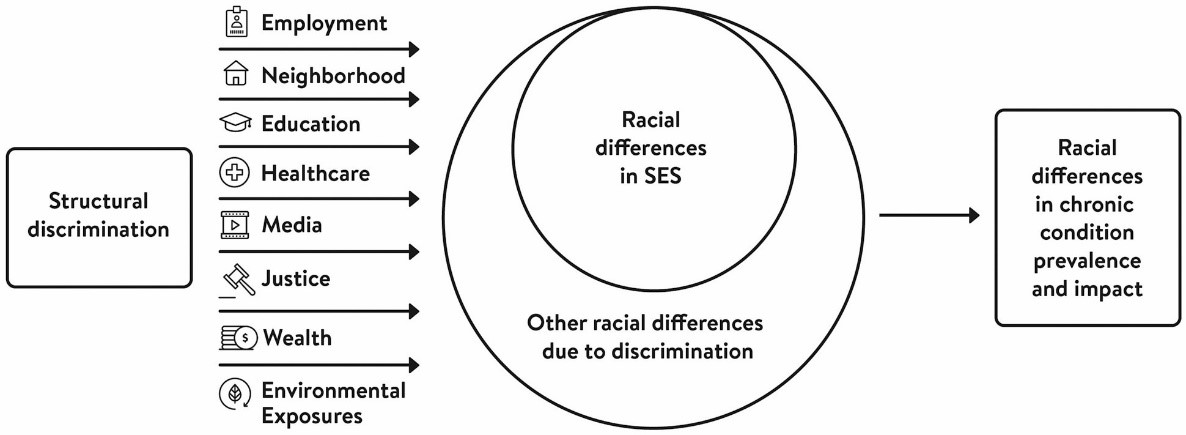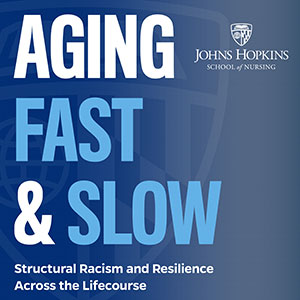Reducing racial disparities in Health: Addressing structural discrimination and resilience
National Institute on Aging of the National Institutes of Health (DP1AG069874)
Contact
Questions? Our dedicated team is here to help.
The Johns Hopkins Structural Racial Discrimination and Resilience Collaborative (SRDRC) brings together researchers to measure the impact of racial discrimination and structural resilience on health across the life course and to develop interventions to combat discriminatory structures while reinforcing community resilience.
Overview
Racial discrimination comes in different forms. While inter-personal discrimination is most recognizable, individuals interact with structures across the life course (education, neighborhood, employment, health) that disadvantage or exclude some more than others. We need a more refined understanding of exactly how this fabric of discriminatory practices, or structural discrimination, affects health outcomes.

Figure: Adapted from Phelan & Link 2015
One effective but less studied tool to combat structural racial discrimination is resilience. Individual resilience is important, but there are resilience structures (social fabric, religious institutions, public programs) that can propel individuals from one life stage to the next. We hope to understand what these factors of structural resilience are, and how to measure their impact. We intend for racial structural discrimination and resilience measurements to bring to light interventions which will move the needle on closing racial disparities.
